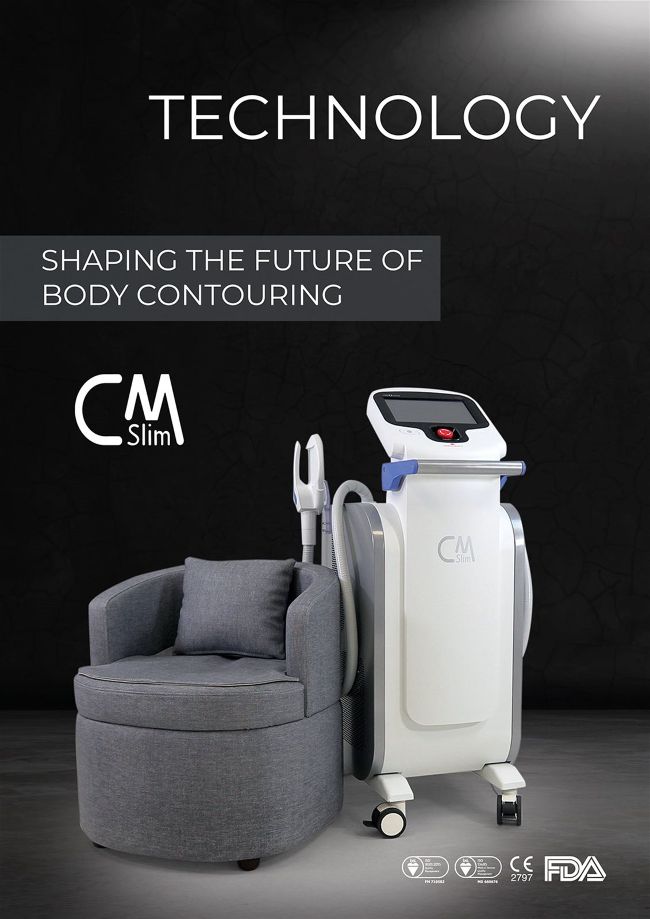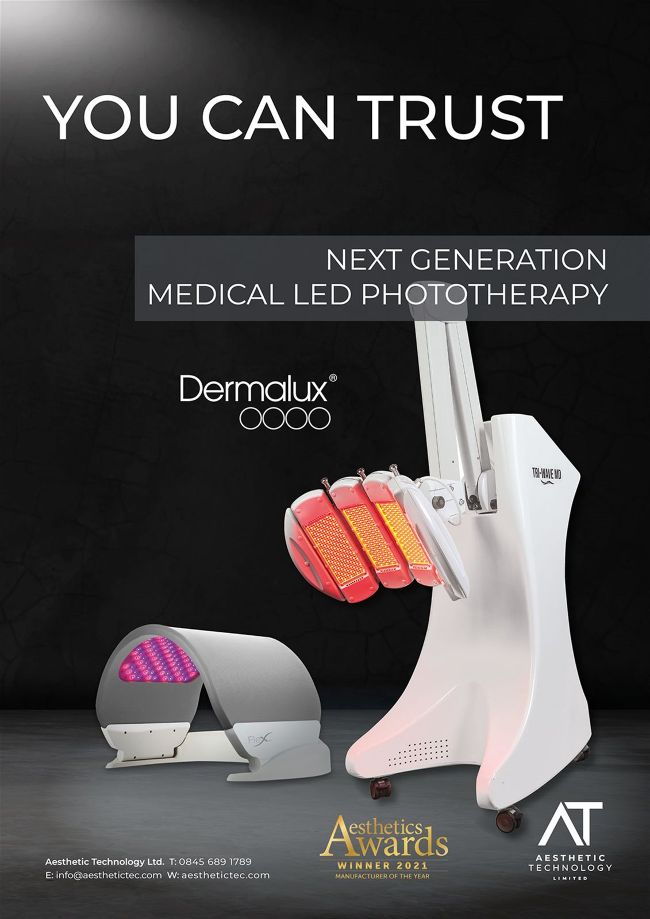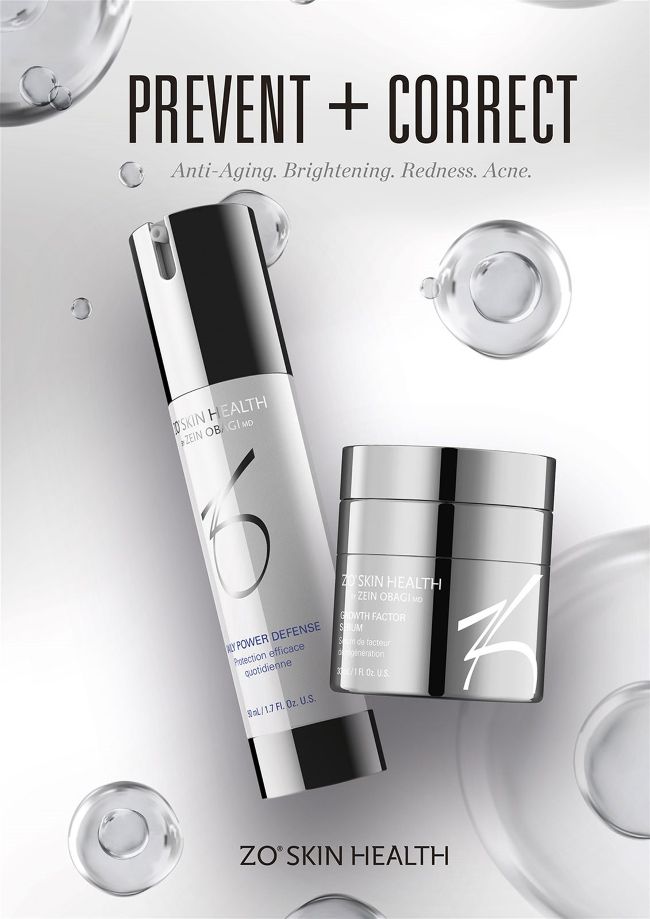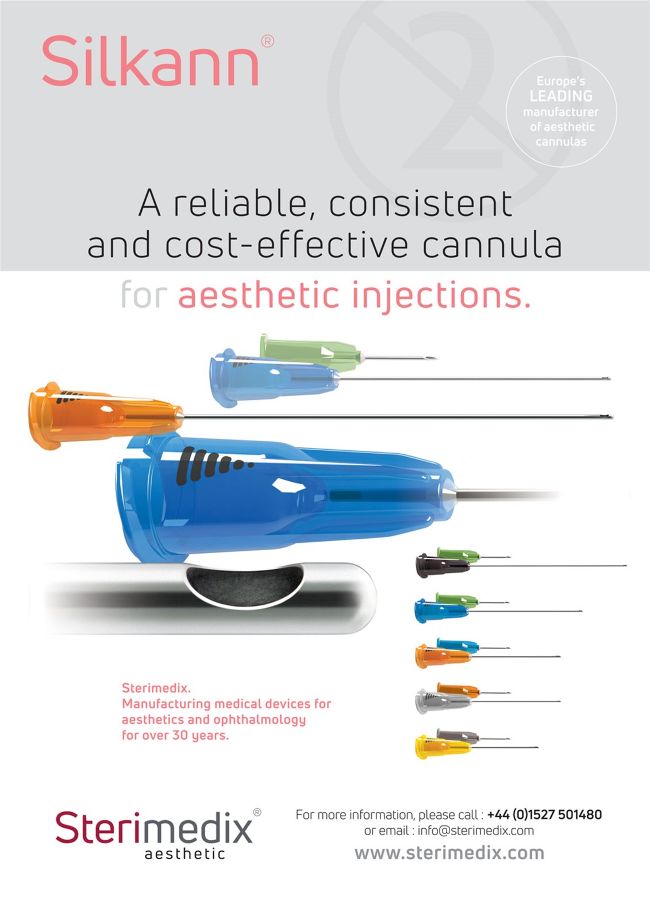VAGINAL WELLNESS
Women’s issues
We still have a way to go to increase awareness and accessibility around treatments for intimate concerns, says aesthetic nurse practitioner Khatra Paterson
KHATRA PATERSON
Khatra Paterson is an aesthetic nurse practitioner and owner of KP Aesthetics in Altrincham. A survivor of female genital mutilation, she has a keen interest in women’s wellness and is an ambassador of Savera UK, a charity tackling culturally-specific abuse in the UK. She has over 30 years’ experience in a medical background, first as a registered nurse and then a midwife, before entering aesthetics. Follow her on Instagram: @kp_aesthetics_clinic
There is still a stigma around open discussions of female genitalia in general, which I feel needs to change. Historically, female genitalia were poorly understood – thelack of education and incorrect information dates back centuries. For example, in Ancient Greek times a physician named Malapus incorrectly linked hysteria in women to being caused by the uterus. In the 1860s, a gynaecologist named Isaac Baker Brown treated women with hysteria or genital malfunction with the removal of the clitoris. Of course, we have better understanding in today’s society and understand this to be incorrect. However, it is no surprise that after centuries of fear surrounding the female genitalia, there is still stigma associated. While the female genitalia are no longer feared, some still see it as a taboo topic and one that shouldn’t be discussed openly.
Changes to our bodies are completely natural and women experience so many throughout their lifetime. But for the aforementioned reasons among others, women that may be menopausal or perimenopausal may find it uncomfortable to talk about the symptoms they are experiencing.


It’s great to see that more women are starting to feel comfortable to discuss their bodies, which I think is more prevalent in the younger generation and is a very important progression in terms of women feeling empowered to seek treatment for health and wellbeing issues. Stress incontinence, for example, is extremely common, affecting one in three women throughout their lifetime. Some women may suffer this in silence but it’s important to know that there are treatments out there that can help with this, as well as vaginal dryness and painful sex. These are all very common symptoms in women, and while there has been a rise in the number of women seeking treatment along with advice, there are still so many more women we can help that feel uncomfortable talking about their bodies – an attitude in society that I hope to see shift soon.
OUT OF THE SHADOWS
In my clinic, the introduction of treatments for feminine wellness such as InMode’s Forma V radiofrequency device (in 2019) and Vivacy’s intimate injectables Desiral and Desiral Plus (in 2020) was influenced by my passion and dictated by my patients. From conversations I had with my patients over time relating to feminine wellness, I realised I needed to educate them and help with their symptoms.
I found that many felt that, as women, we just naturally have to go through these things and there are no solutions. That is incorrect. There are treatments that can help ease and assist with many problematic issues associated with vaginal wellness. Personally, I feel comfortable talking openly to my patients about our bodies as women in a knowledgeable, professional and personal way. From my own FGM (female genital mutilation) experience and many years spent as a midwife, I feel passionately about women being in control of their bodies. It’s empowering and inspiring to know that there are accessible treatments that can help women achieve this.
One of the main blocks we have in the UK around women accessing these treatments is simply a lack of awareness that they exist. Education plays a huge part in this.
When children have PHSE lessons at school they talk about the menstrual cycle and puberty, conception and contraception.
However, menopause is never discussed, as though it doesn’t exist. Not educating about menopause and sexual wellness at this stage is a missed opportunity. There may be children that have mothers, aunts or other females close to them going through menopause at that time. By educating from a young age without fear and secrecy, children feel free to ask questions and discuss these bodily changes openly with adults, who can reassure them that it’s perfectly normal for our bodies to change significantly through life, and that there are treatments that can help when that time comes.

The media could do a lot more to openly discuss menopause, and popular TV shows and soaps could do better in portraying this part of everyday life that happens to all women. Influential, high-profile women could talk publicly and discuss their personal experiences using their platforms. This is slowly happening more; however, it’s not integrated enough into society for the stigma to have been broken down completely. Davina McCall recently spoke about her personal journey relating to menopause, which many found inspirational and comforting. I do feel there is still more that can be done, as the more we all talk about it, the more people will share their own stories.
HELP IS AT HAND
Stress incontinence, vaginal dryness and the appearance of the vulva are the most common reasons for women accessing vaginal wellness treatments that I see in my clinic. There are other pelvic dysfunctions which are also common, such as reduced sexual arousal, infrequent orgasm and painful sex. People often have the misconception of urinary incontinence relating to an older person; however, this is not the case. It also affects some younger women who are going through their reproductive years. As a midwife I regularly helped patients that suffered from stress incontinence at a much younger age. The effects of pregnancy, labour and traumas that happen within our bodies – particularly to the perineum – can have a big impact on stress incontinence.
“I found that many of my patients felt that, as women, we just naturally have to go through these things and there are no solutions. That is incorrect”
The reduction of oestrogen in the menopause phase also effects the pelvic floor and the ligaments associated with it. In aesthetics we openly discuss the reduction of oestrogen, which reduces the amount of collagen in the face. We’re completely comfortable discussing this, however the exact same thing happens to the vulva. The loss of elastin causes an increase in deep lines, wrinkles and sagging. Just as our faces change, so do our vulvas. Labia majora – the cushioning that protects our genitalia – can lose plumpness and deflate, which can cause infections because the vaginal opening loses some of its protection. This is something that can be easily treated in clinic with intimate injectables like Desirial.
SIMPLE SOLUTIONS
Like with any treatment, I try to find out what has motivated the patient to come and see me. What exactly has prompted them? What are their worries, concerns and expectations? I have a detailed questionnaire to complete before consultation, and this takes a little pressure off a woman who feels uncomfortable discussing her issue aloud or does not know exactly how to approach it initially. Doing this gives me prior knowledge of what their issue is and opens communication around the topic, helping them to feel at ease. Reassurance, respect, and sensitivity are of huge importance along the patient journey for vaginal wellness treatments. I understand women may be a little more hesitant or feel discomfort in speaking openly and frankly about their vaginal wellness, however, I encourage them to do exactly that. I show women a good variation of “normal” vaginas, and this does tend to offer reassurance, as they really are varied. This is really important if it’s an aesthetic concern, as patients often don’t have images to compare to, other than from pornography.
Votiva is a non-ablative, non-invasive bipolar radiofrequency treatment using the InMode FormaV device. The handpiece is a probe which uses electrodes to deliver the radiofrequency, sitting quite comfortably in the vaginal canal. It is a very safe and comfortable treatment that works by heating the vaginal canal by up to 43 degrees. Votiva helps with strengthening the pelvic floor and improving stress incontinence and vaginal dryness, as well as improving the appearance of the labia majora. The radiofrequency heat penetrates around the pelvic floor, stimulating collagen and elastin to strengthen the pelvic floor muscle and improve blood circulation in the area.

The creation of heat addresses laxity in the vagina canal, which can tighten the vagina and help improve sex. The procedure takes 30 minutes on average, and we usually recommend three treatments spaced three to four weeks apart depending on the individual’s needs. For external symptoms, the probe can be applied to the labia majora using the same process of heating the tissues to stimulate collagen for a fuller appearance of the labia itself. Posttreatment, it is advised to avoid hot water for two days and avoid sex for two to three days. Results can last for six to nine months.
Treatments like Votiva are very simple and quick but can be hugely effective, liberating and empowering women experiencing these symptoms to take back control of their bodies. Treatments can be done in isolation – Forma V for instance covers many areas – however, for women experiencing menopause, combination treatments can be really effective.
Seeking out a menopause professional can help with combination treatments that may include a series of in-clinic treatments and perhaps HRT to help with hormones and oestrogen. There are so many ways that women can improve and ease their vaginal wellness concerns. We just need to talk to our patients about them and support them on the journey.